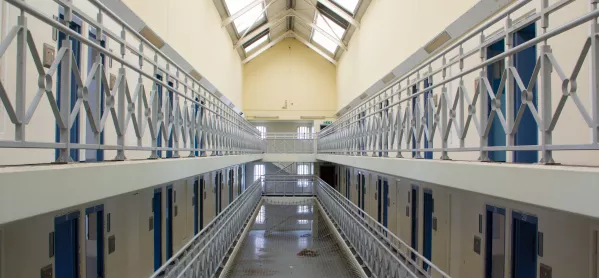Education in prisons needs to be reinstated or people will return to their communities “deskilled, disillusioned and discouraged”, according to the Prisoners’ Education Trust charity.
The warning was issued as Peter Clarke, chief inspector of prisons, published his annual report today, stating that inspectors found “widespread poor performance in the area of purposeful activity”.
Mr Clarke said: “Purposeful activity sits at the heart of whether a prison can offer a safe, decent and rehabilitative environment. We found that no meaningful progress or insufficient progress had been made against 12 of the 15 recommendations we reviewed in this area. Our partners from Ofsted reviewed progress on a thematic basis, and found no significant progress against any theme they reviewed."
Coronavirus: 'Intense' Covid transmission from 17- and 18-year-olds
GCSE resits: November exams 'pose public health risk'
More: Our voices must be heard on Covid-19, say students
The Prisoners’ Education Trust’s head of policy, Francesca Cooney said that, as the chief inspector’s report highlighted, “since March many prisoners have been locked up in cells for 23 hours a day, with no activities or face-to-face education”.
Coronavirus: Education 'must be restarted in prisons'
“This situation is unsustainable and stops prisoners being able to develop the skills they need to resettle successfully. As we see in the community, there are ways of delivering face-to-face and online education safely, yet prisoners currently have no classes, no access to the internet and no means to do assessments or take exams. Pushing worksheets through a cell door is not enough: more must be done to support learning and help prisoners progress with their studies.
“It is now essential that prisons do what they can to reduce restrictions and reinstate education for prisoners. The prison service must take immediate steps to offer face-to-face education under safe, socially distanced measures. Where this is not possible, they must allow organisations such as Prisoners’ Education Trust to offer quality distance learning, with the chance for assessment and progression.”
Ms Cooney said prisons had to also ensure controlled internet access to support studying and rehabilitation. “Without this, the digital divide will become a chasm, as prisoner learners miss out on developing digital literacy skills," she said. "The chief inspector’s report makes clear that ‘with the almost complete lack of work, training or education’, frustrations are ‘beginning to build’ in our prisons. Without immediate action, people will return to their communities deskilled, disillusioned and discouraged, having not had the chance to complete their education and work towards a better life after prison. Education cannot be an optional extra.”




